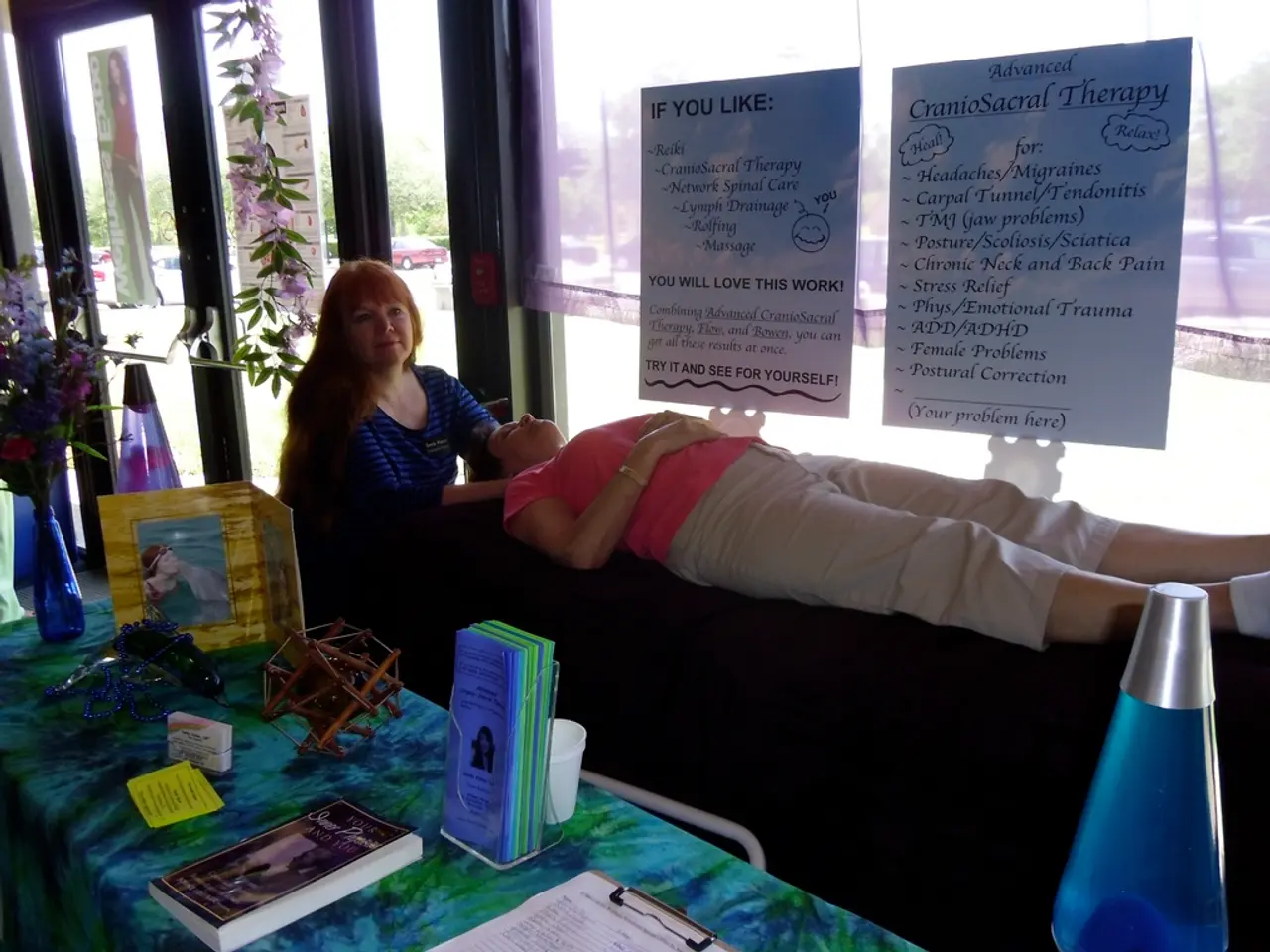Exploring Innovative Depression Therapies: The Potential of Transcranial Magnetic Stimulation
Transcranial Magnetic Stimulation (TMS) therapy is an innovative treatment for people struggling with depression and various other mental health conditions. This non-invasive, non-medication treatment uses magnetic fields to stimulate specific brain areas, offering promising benefits, success rates, and minimal side effects.
Potential Benefits and Success Rates
TMS therapy has shown significant improvements in symptoms for a range of mental health conditions beyond depression.
Anxiety Disorders
TMS significantly reduces symptoms such as excessive worry, panic attacks, generalized fear, tension, and social anxiety by modulating relevant brain areas. A 2021 study in Neuropsychopharmacology showed symptom improvement in generalized anxiety disorder after four weeks of treatment. A 2022 meta-analysis confirmed its effectiveness across multiple anxiety disorders, particularly with right prefrontal cortex targeting.
Obsessive-Compulsive Disorder (OCD)
The FDA cleared deep TMS (dTMS) for OCD in 2018. This protocol targets the supplementary motor area and dorsomedial prefrontal cortex to disrupt the cycle of obsessions and compulsions. TMS, combined with or as an alternative to SSRIs and CBT, helps reduce OCD symptoms.
Post-Traumatic Stress Disorder (PTSD)
While detailed data are less highlighted, TMS has been used to treat PTSD, showing symptom reduction by stimulating relevant brain circuits without medication.
Postpartum Depression (PPD)
TMS is particularly effective and safe for mothers, activating underactive brain regions tied to PPD. It provides faster relief than medications, with studies reporting an 84% response rate and 78% remission rate, with benefits lasting over three years for most patients. Side effects are minimal, mostly minor headaches that subside quickly.
Depression (including treatment-resistant cases)
TMS improves depression symptoms in up to 70% of patients who have not responded to antidepressants, resetting mood-regulating neural pathways non-invasively.
Side Effects
TMS is generally well-tolerated, with minimal to no systemic side effects. The most common side effect is a transient minor headache after treatment. It does not require anesthesia or sedation, involves no downtime, and allows patients to return to normal activities immediately. Being non-pharmacological, it avoids medication-related side effects such as weight gain, sexual dysfunction, or sedation.
Accessibility and Insurance
We accept most major insurances at our platform for TMS therapy, making it more accessible for those in need.
In summary, TMS provides a safe, FDA-approved, non-invasive treatment option with strong evidence of effectiveness across multiple mental health conditions beyond depression, including anxiety disorders, OCD, PTSD, and PPD, with success rates ranging approximately 70%-84% depending on the condition and treatment protocol. Side effects remain minimal and transient, primarily minor headaches, making it a viable alternative or supplement to medication-based therapies. Your doctor will also consider your medical history to ensure TMS is a safe and effective option for you. The TMS treatment process involves sitting in a comfortable chair, with a clinician placing the TMS headpiece on the patient. The full course of TMS treatment is typically five days a week for four to six weeks.
[1] https://www.ncbi.nlm.nih.gov/pmc/articles/PMC7825603/ [2] https://www.ncbi.nlm.nih.gov/pmc/articles/PMC7225731/ [3] https://www.ncbi.nlm.nih.gov/pmc/articles/PMC7225731/ [4] https://www.ncbi.nlm.nih.gov/pmc/articles/PMC7094187/
- TMS therapy has been found to benefit individuals with bipolar disorder, as studies suggest that it may help manage symptoms more effectively compared to traditional medication management.
- Mental health treatments often focus on depression treatment, but TMS therapy has demonstrated promise in treating treatment-resistant depression, influencing the science behind mental-health and health-and-wellness approaches.
- Aside from its benefits in mental health, TMS therapy could potentially expand its application to other areas, considering its ability to stimulate specific brain areas and achieve minimized side effects.
- The broad range of mental health conditions that may benefit from TMS therapy, such as depression, anxiety disorders, OCD, PTSD, and postpartum depression, underscores the importance of continuous research and development in this area of science and healthcare.




